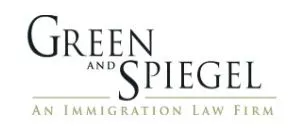This year has proven to be a series of false starts for prospective Israeli E-2 investors.
In January, we expressed optimism that after years of waiting the E-2 visa for Israeli nationals was finally moving forward. In April, we tempered our expectations by reporting how the U.S. Department of State ("DOS") informed the American Immigration Lawyers Association ("AILA") that certain regulatory reciprocity requirements had not been met. Because the Israeli government's first regulatory draft was perceived to be unfair to U.S. investors seeking the E-2 equivalent in Israel, DOS had not yet opened the visa for Israelis. DOS projected that the E-2 would not become available until October at the earliest.
But perhaps DOS' projections were also too optimistic. Stakeholders are now bracing for additional delays due to lack of Israeli action to fix the noncompliant regulations. A friend of our Firm reports the following from discussions with knowledgeable State Department officers:
Earlier this year, DOS reviewed regulations drafted by Israel for creating a visa category, reciprocal to the E-2, for American investors. DOS was not satisfied that the proposed regulations sufficiently reflected the benefits available to foreign investors under the E-2 classification, and returned them to the Israeli government with detailed comments and suggestions.
Because the expectation was that the Israeli government would promptly rework the proposed regulations, DOS informed AILA at the Spring AILA/DOS Liaison Meeting that "we anticipate that E-2 visas will be available for nationals of Israel by the fourth quarter of calendar year 2017."
This expectation has proven overly optimistic: The Israeli government has apparently not even begun the regulatory redraft. Accordingly, the anticipated timeframe given to us by DOS will likely not be met.
When the reworked regulations are eventually sent back to DOS, they will again be reviewed for consistency with the provisions of the E-2 classification. If, this time, DOS is satisfied that the Israeli regulations faithfully parallel the E-2 provisions, the two governments will finalize arrangements for the birth of a new era in bilateral investor relations.
The U.S. Embassy in Tel Aviv continues to report that the E-2 is not in effect. We are disappointed to hear this news and hope that a suitable regulatory redraft will be soon be undertaken and accomplished, opening the doors for international investment and economic growth in both countries.
Presently, Israelis without dual nationality may only avail themselves of the E-1 treaty trader visa, which requires companies to engage in substantial international trade to qualify. Additionally, a majority of the trade must be with Israel, disqualifying many entrepreneurs seeking to utilize the visa for more "domestic purposes".
Israeli applicants accordingly would need to acquire a second nationality that holds an E-2 treaty with the United States, such as Grenada, which provides citizenship by investment.
We will continue to keep our readers updated with future developments relating to the E-2 implementation. Contact us today to discuss immigration options relating to your investment in the United States.
The content of this article is intended to provide a general guide to the subject matter. Specialist advice should be sought about your specific circumstances.

